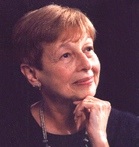Sign in for exclusive products and special discounts.
The Relevance of Walden Today
by Anne Faigen
When I began to write my novel Finding Her Way, I had a distinct purpose in mind, grounded in my classroom experience. A teacher of high school honors English, I had always enjoyed the lively discussions related to my students’ reading of Henry David Thoreau’s Walden. Everything about Thoreau’s life intrigued them. Working a few weeks a year, then having the rest of the time to do as you please? How cool is that? Defying authority for principles you believe in? Hmm…not so unlike their arguments with parents over what they considered unfair restrictions on their lifestyles. Long, uninterrupted times in beautiful surroundings to figure out who you are and what’s important to you? Sounded about right to them.
But there was one big downside: Thoreau’s layered, dense, nineteenth-century language, with all its subtleties, was hard for them to penetrate. They “got” him, but his writing was quite another matter. After listening to their objections and guiding them through significant passages, I decided that when I was no longer teaching, I would return to my other love—writing—and, in a young people’s novel with a compelling plot, make Thoreau’s writings and ideas more accessible to them. Woven into the narrative, I would use the writer’s own words, making them inherent to the plot in ways that my readers would understand and appreciate. I would present him not only as cool but as the major American literary figure, philosopher, and environmentalist that he was and remains.
Re-examining Finding Her Way, I was struck by its relevance to the lives of twenty-first-century young people. Rachel, the talented young artist who chooses a career and a life unfamiliar and bewildering to her farming family, reflects the many choices open to adolescents—choices that are new and sometimes puzzling to them and their parents. Both Thoreau and Margaret Fuller, another mentor to Rachel and the first American female foreign correspondent in history, encourage the protagonist to value her own talents and individuality. They help her to find the courage to follow dreams very different from those around her, echoing the challenges confronted by contemporary young people. The pressures of conformity and the ugliness of racism are themes resonating in the novel, just as they do in our own society.
I hope that readers of Finding Her Way will not only enjoy the novel but also will learn a bit more about themselves and their own lives in the process.
 Anne Faigen has a B.A. in creative writing and a graduate degree in literature. She enjoyed a rewarding career teaching high school and college courses in literature and writing before becoming a full-time author. An abiding interest in encouraging young readers to learn about themselves and their world motivated her to write historical fiction.
Anne Faigen has a B.A. in creative writing and a graduate degree in literature. She enjoyed a rewarding career teaching high school and college courses in literature and writing before becoming a full-time author. An abiding interest in encouraging young readers to learn about themselves and their world motivated her to write historical fiction.
